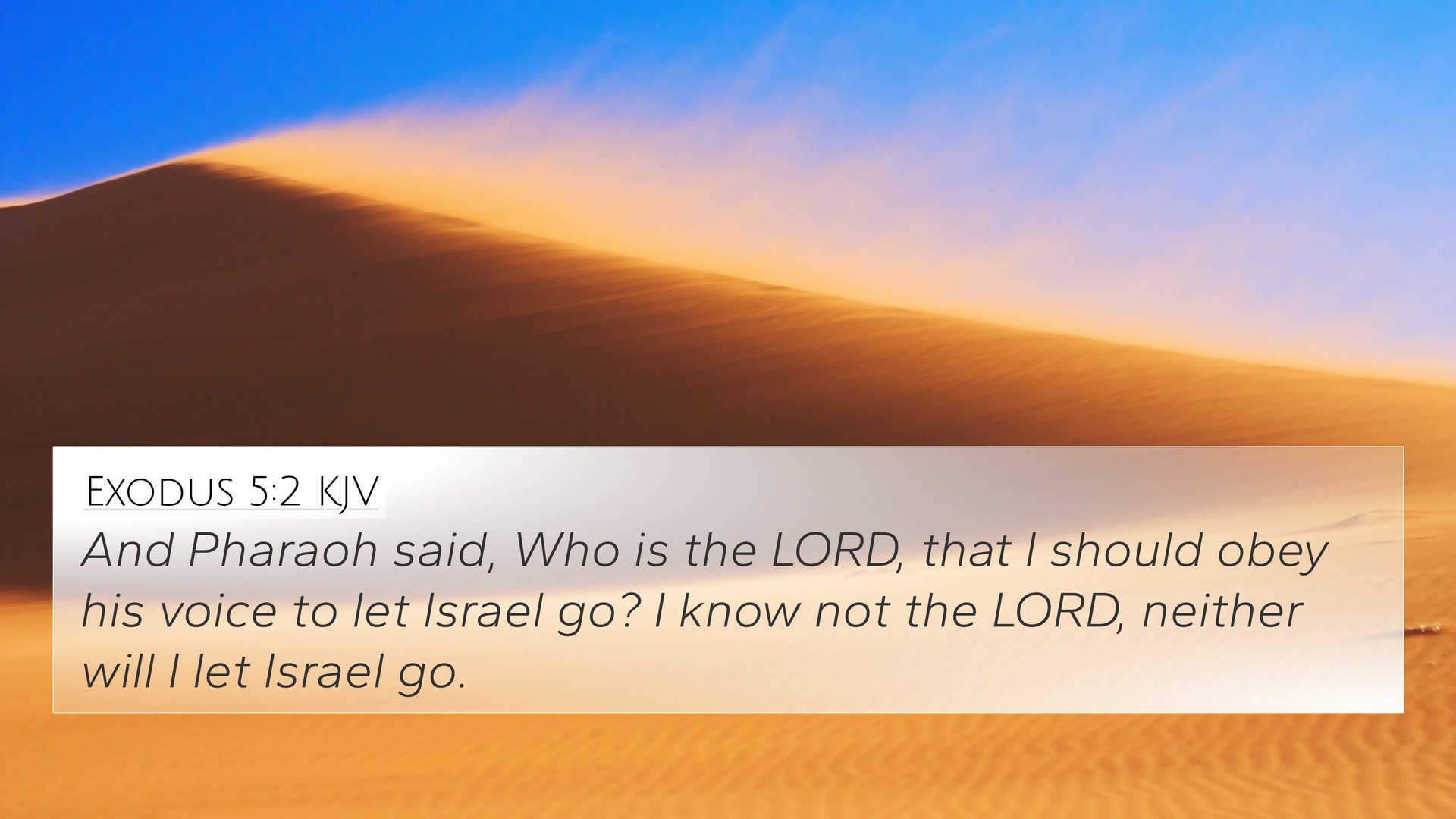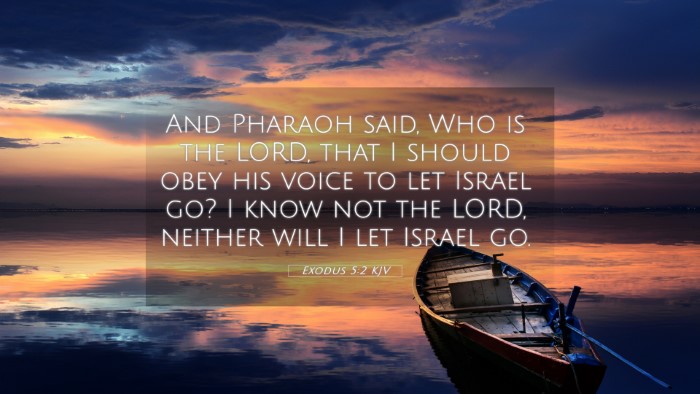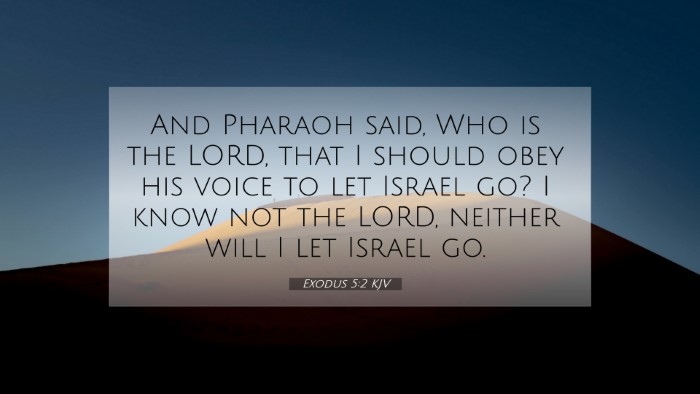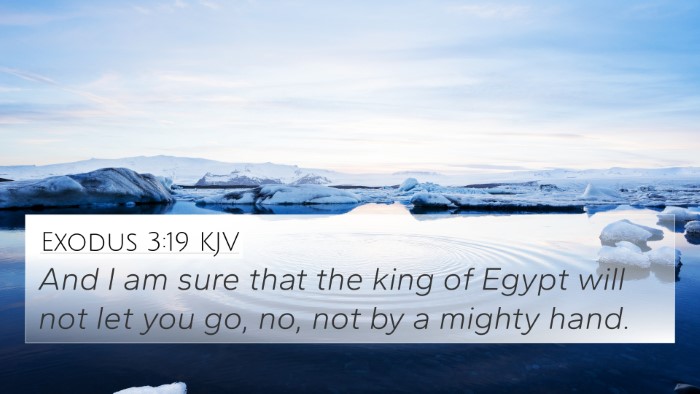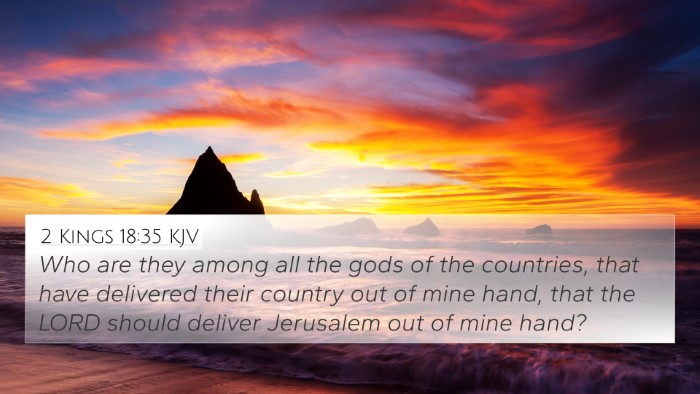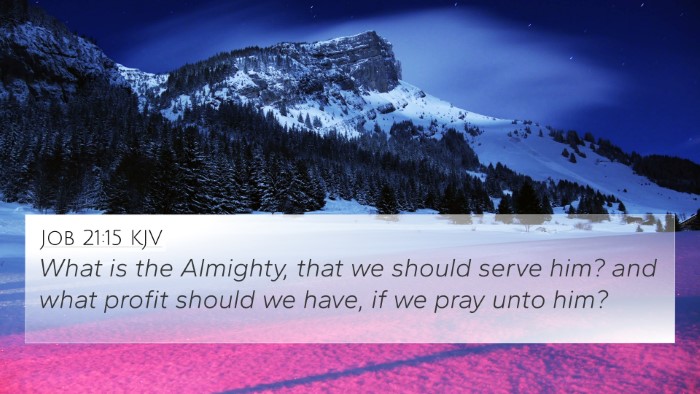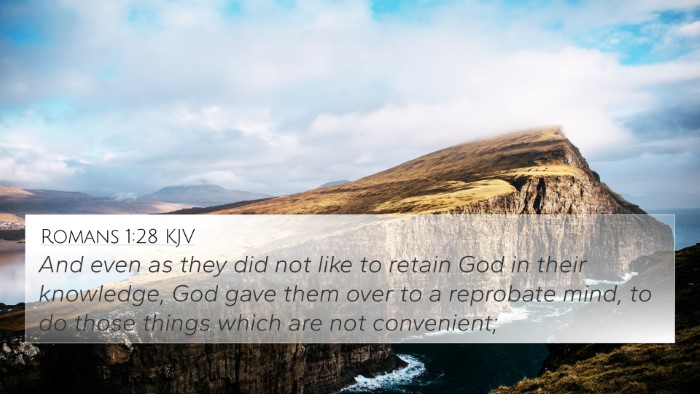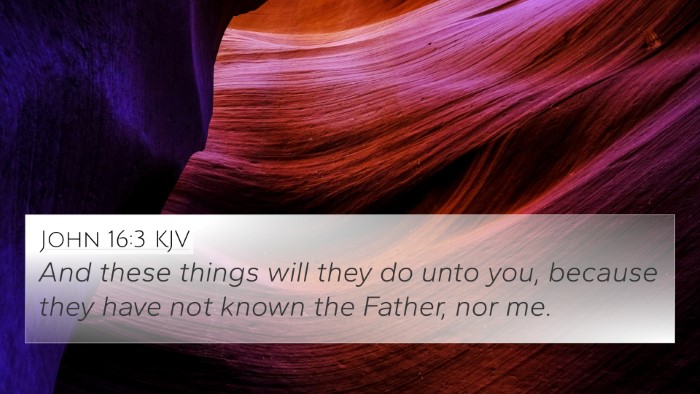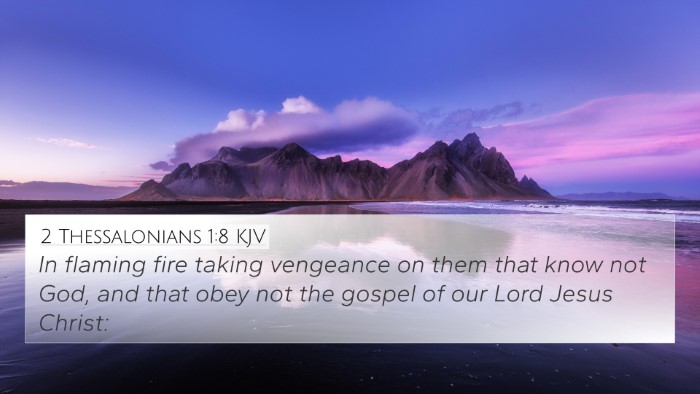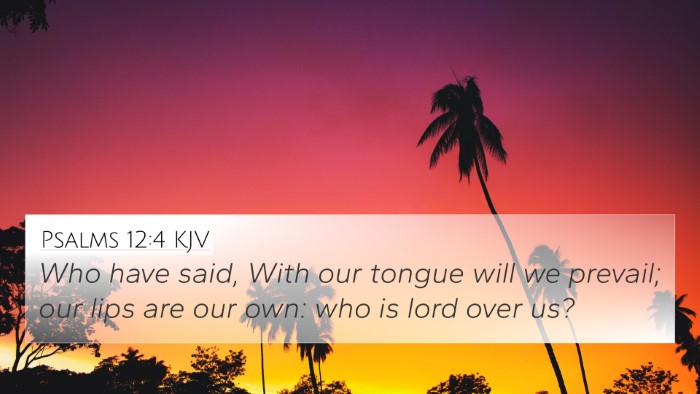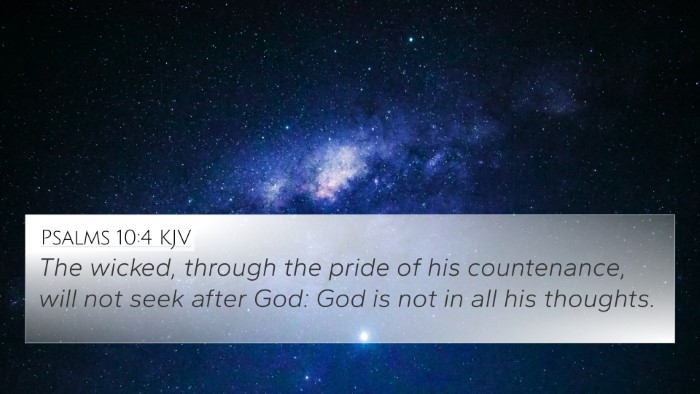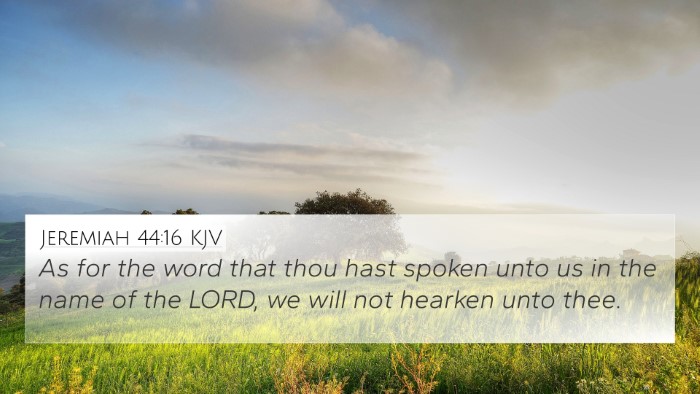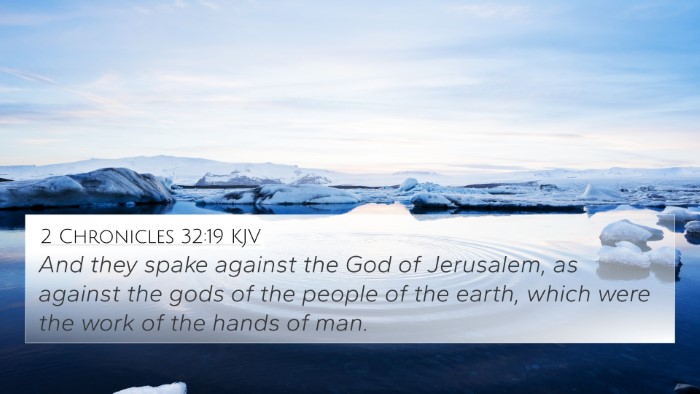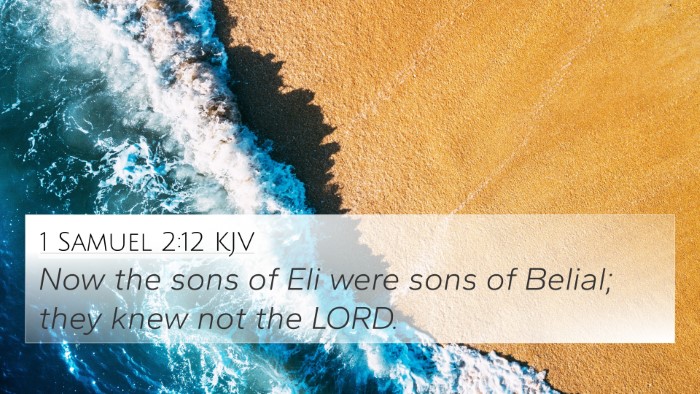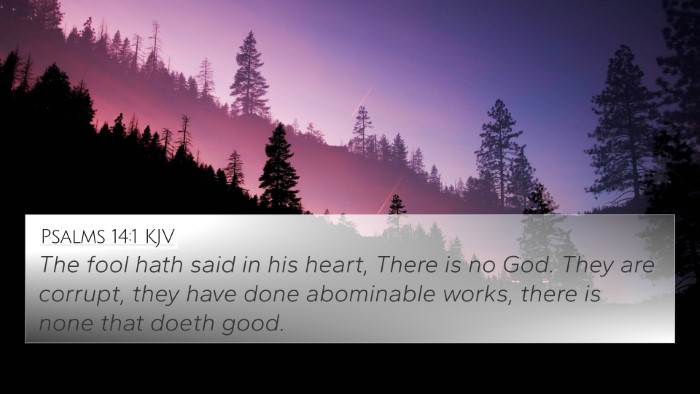Understanding Exodus 5:2
Exodus 5:2 states: "And Pharaoh said, Who is the Lord, that I should obey his voice to let Israel go? I know not the Lord, neither will I let Israel go."
Summary of Key Themes
This verse encapsulates a pivotal moment in the narrative of the Israelites' liberation from Egypt. Pharaoh’s question reflects his ignorance and defiance of God, which is central to the story of the Exodus. The verse lays the groundwork for understanding the conflict between divine authority and earthly power.
Commentary Insights
- Matthew Henry: Henry emphasizes Pharaoh's profound ignorance of God's sovereignty. He notes that Pharaoh's inquiry demonstrates not just a lack of knowledge, but a rebellious heart. This moment foreshadows the plagues that will be unleashed upon Egypt as God demonstrates His power and authority.
- Albert Barnes: Barnes interprets Pharaoh’s words as a direct challenge to God's will. He notes that this attitude is not just personal but reflects a broader theme of pride and resistance against divine expectations. The assertion that he does not know God suggests a deliberate disregard for the covenant relationship Israel had with the Lord.
- Adam Clarke: Clarke expands on the implications of Pharaoh’s ignorance. He observes that this denial sets the stage for the forthcoming confrontation between Moses, as God's messenger, and Pharaoh, as the representative of worldly power. Clarke also highlights the significance of God revealing Himself to the nations, contrasting Israel’s understanding of God with Egypt’s ignorance.
Bible Cross-References Related to Exodus 5:2
- Exodus 3:13-14 - God's declaration of His name as "I AM," which speaks directly to the authority Pharaoh denies.
- Psalm 73:22-23 - A reflection on ignorance similar to that of Pharaoh, paralleling the fate of the arrogant who disregard God.
- Romans 1:21 - Highlights the foolishness of not acknowledging God, similar in context to Pharaoh's denial.
- Isaiah 45:9 - Addresses the futility of questioning God's ways and authority, akin to Pharaoh's stance.
- Jeremiah 10:6-7 - The acknowledgment of God's supremacy and the foolishness of idol worship, contrasting Pharaoh's defiance.
- Luke 20:17 - Jesus references rejection of the cornerstone, echoing Pharaoh's rejection of God’s messenger.
- 1 Corinthians 1:18-25 - The wisdom of God compared to the wisdom of the world, alluding to Pharaoh's arrogance in ignorance of divine truth.
Connections to Thematic Exegesis
The themes of rebellion, ignorance, and divine sovereignty in Exodus 5:2 resonate throughout both the Old and New Testaments. The denial of God’s authority by a powerful figure draws parallels with various Biblical characters who also faced divine authority.
Further Reflections
Exodus 5:2 acts as a cornerstone for understanding the primary narrative of liberation. It highlights the thematic connections within scripture, making clear the consequences of ignoring divine commands. Through this lens, one can see how Pharaoh is not just an individual but a representation of all who oppose God's will.
Exploring Inter-Biblical Dialogue
This verse opens up avenues for study through Bible cross-referencing, aiding readers in drawing connections between historical events and theological teachings. By identifying the relationships between Bible verses that relate to each other, one enriches their understanding of scripture.
Conclusion
The refusal to recognize God, as seen in Exodus 5:2, is a cautionary tale that reverberates throughout the Bible. By engaging in cross-referencing and comparative Bible verse analysis, readers can uncover the depth of themes that challenge the human heart and illuminate divine truth.
